Business Education for Developers
Technical skills are the backbone of software development. However, in today’s world of startups, understanding the broader business landscape is equally vital. A strong grasp of business concepts, such as project management, budgeting, and market analysis, can transform you into a more versatile and effective professional. Having this background enables you to bridge the gap between technical initiatives and business objectives.
Business vocabulary and viewpoints can help you have smoother communication with non-technical stakeholders. Moreover, a business-oriented perspective can help you make strategic decisions, align software projects with organizational goals, and even explore entrepreneurial opportunities.
With this in mind, I’m sharing a collection of books that I’ve accumulated over the years. Each of these books was recommended to me by managers and members of leadership at my previous and current employers - there are no sponsorships here.
Table of Contents
- The First 90 Days
- The Personal MBA
- Now, Discover Your Strengths
- Search Inside Yourself
- Radical Candor
- Getting Things Done
- The Progress Principle
- The Manager's Path
- Leaders Eat Last
- Drive
- Deep Work
- Flow
- Accelerate This!
- Blue Ocean Strategy
The links below are Amazon affiliate links. Purchasing any of these books helps fund more posts like these.
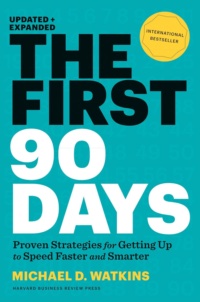
Michael D. Watkins, 2013
This is a thoughtful guide for professionals transitioning into new leadership roles. Watkins outlines a comprehensive strategy for navigating the critital initial phase of starting a new role. He emphasizes the importance of understanding the organizational culture, building key relationships, and formulating a clear action plan to achieve early wins. The book provides actionable insights and real-world examples, making it an invaluable resource for anyone seeking to make a successful transition into a leadership role. It’s particularly relevant for software developers, as it underscores the significance of adapting skills and strategies to new challenges and environments.
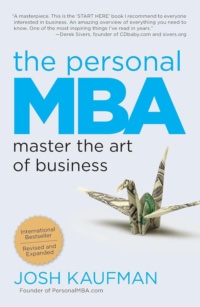
Josh Kaufman, 2012
This is a comprehensive guide that distills essential business principles and concepts for readers looking to gain a practical understanding of business. Kaufman introduces topics such as finance, marketing, strategy, and decision-making, and provides readers with a solid foundation for participation in business discussions. This book is particularly valuable for software developers, as it equips them with the business knowledge needed to excel in roles where technical skills intersect with business objectives.
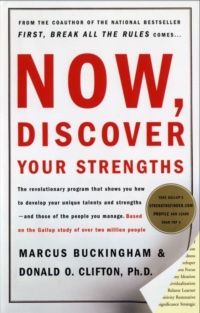
Marcus Buckingham and Donald O. Clifton, 2020
The book emphasizes the idea that focusing on one’s strengths, rather than trying to fix weaknesses, is the key to personal and professional success. It encourages readers to shift their perspective and embrace what they excel at, as this can lead to increased productivity, satisfaction, and overall well-being.
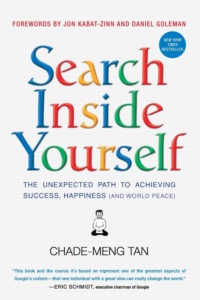
Chade-Meng Tan, Daniel Goleman, Jon Kabat-Zinn (Author), 2014
Search Inside Yourself is an exploration of the intersection between mindfulness and emotional intelligence in the workplace. This book gives you a guide to develop self-awareness, empathy, and leadership skills based on meditation practices and internal review. This book has some valuable insights into fostering not only well-being, but also improving collaboration, communication, and creativity in the workplace.
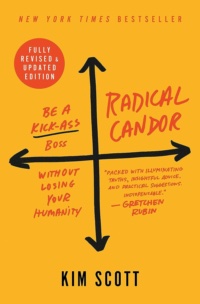
Kim Scott, 2019
This book offers a framework for providing honest, direct and caring feedback to team members. Kim Scott emphasizes the importance of building strong relationships with team members and offers advice for building open communication and professional growth. This book should give you some tools for building collaboration and problem solving.
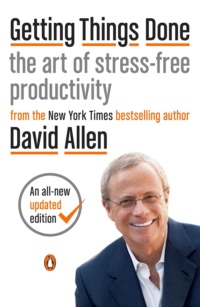
David Allen, 2015
This is a productivity and time management classic that offers a comprehensive system for organizing tasks and reducing mental clutter. The methodology is based on capturing commitments, tasks, and ideas into a system that allows you to systematically process them. The organizational techniques should help you find a clear mind and enhance focus by reducing the cognitive load associated with task switching. This can be especially helpful when working in complex coding projects where you may be juggling multiple simulataneous tasks. This book should help you free up some mental bandwidth and increase your productivity.
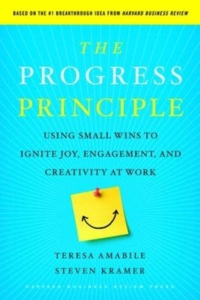
Teresa Amabile, Steven Kramer, 2011
The Progress Principle examines the psychology of motivation and creativity in the workplace. Research has shown that small incremental steps are the most powerful motivator for creative individuals. The book highlights the importance of daily progress in enhancing job satisfaction and overall productivity. This is a valuable reminder that consistent progress, no matter how incremental, can be a driving force behind innovation and job satisfaction.
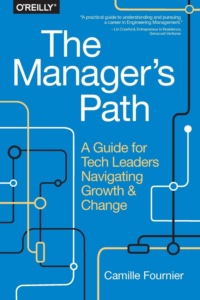
Camille Fournier, 2017
This book offers a practical roadmap for aspiring and current tech managers. This book is presented as a detailed guide that outlines the various stages of a managers career from individual contributor to senior leadership roles. Camille Fournier presents the challenges and responsibilties at each stage and offers valuable advice for each stage. The book presents advice for improving communication, team building, and decision-making. For any developer looking to make a transition in their career, this can be a great guidebook.
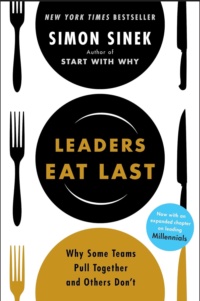
Simon Sinek, 2017
From 2017, this book explores the profound impact of leadership on organizational culture and employee well-being. The author argues that great leaders prioritize the needs of their teams, fostering a sense of trust and safety that encourages collaboration and innovation. Sinek delves into the foundations of effective leadership, emphasizing the importance of empathy, selflessness, and a commitment to the long-term success of both individuals and organizations.

Daniel H. Pink, 2011
This book was ahead of the curve in 2011. It explores the science of motivation and presents a compelling argument that traditional reward and punishment based approaches to motivation are antiquated. Pink contends that, for complex tasks requiring creativity and problem-solving, intrinsic motivation, fueled by autonomy, mastery, and purpose, is more effective than external rewards. This book offers insight on how individuals and organizations can harness these principles to foster motivation and improve erformance. This offers a fresh perspective for both personal and professional growth.
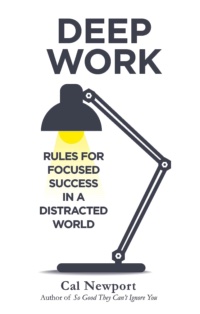
Cal Newport, 2013
If you are hoping to maximize productivity and creativity, this book is a good place to start. In today’s distracted world, deep work is harder than ever to accomplish. Newport argues that the ability to focus without distraction on cognitively demanding tasks is becoming increasingly rare and valuable in our digital age. He presents practical strategies to cultivate deep work, emphasizing the importance of structured routines, eliminating shallow work, and harnessing the power of deliberate practice to achieve true mastery.

Mihaly Csikszentmihalyi, 2008
Csikszentmihalyi delves into the state of flow, where individuals are fully engaged and immersed in an activity. Being in a flow state leads to increased happiness and productivity. Drawing from research, he outlines the conditions and principles that facilitate achieving and maintaining this state, emphasizing the importance of clear goals, immediate feedback, and the balance between skills and challenges. The book serves as a comprehensive guide for harnessing the power of flow to enhance creativity, satisfaction, and overall well-being in life.
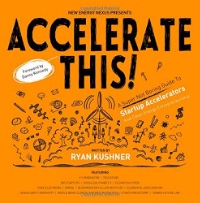
Ryan Kushner, Danny Kennedy, 2018
The book offers a perspective on how innovations in renewable energy combined with disruptive technologies can revolutionize our energy landscape. It emphasizes the urgency of accelerating the adoption of these solutions to combat climate change and provides a compelling vision for a sustainable and prosperous future. This book is perhaps the outlier on this list, but is included here as a discussion of distruptive industries.
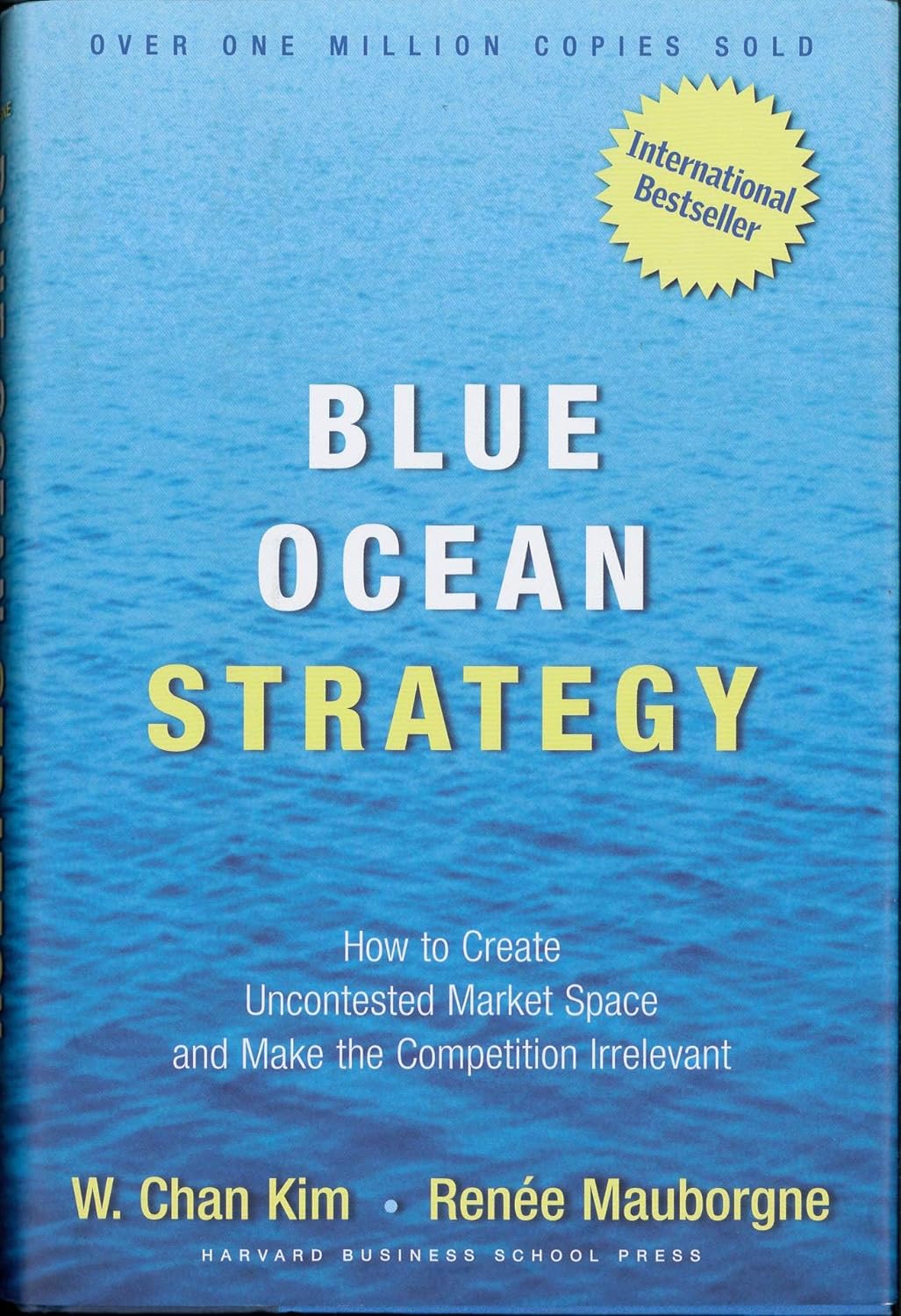
W. Chan Kim, Renee Mauborgne, 1994
A classic book where W. Chan Kim and Renee Mauborgne introduce a groundbreaking business concept that challenges traditional competition-based thinking. It advocates for companies to create uncontested market spaces or “blue oceans” by innovating their value propositions, rather than competing in overcrowded, competitive “red oceans.” The book provides a detailed roadmap for businesses to discover new market opportunities, differentiate themselves, and ultimately achieve sustainable growth and profitability.